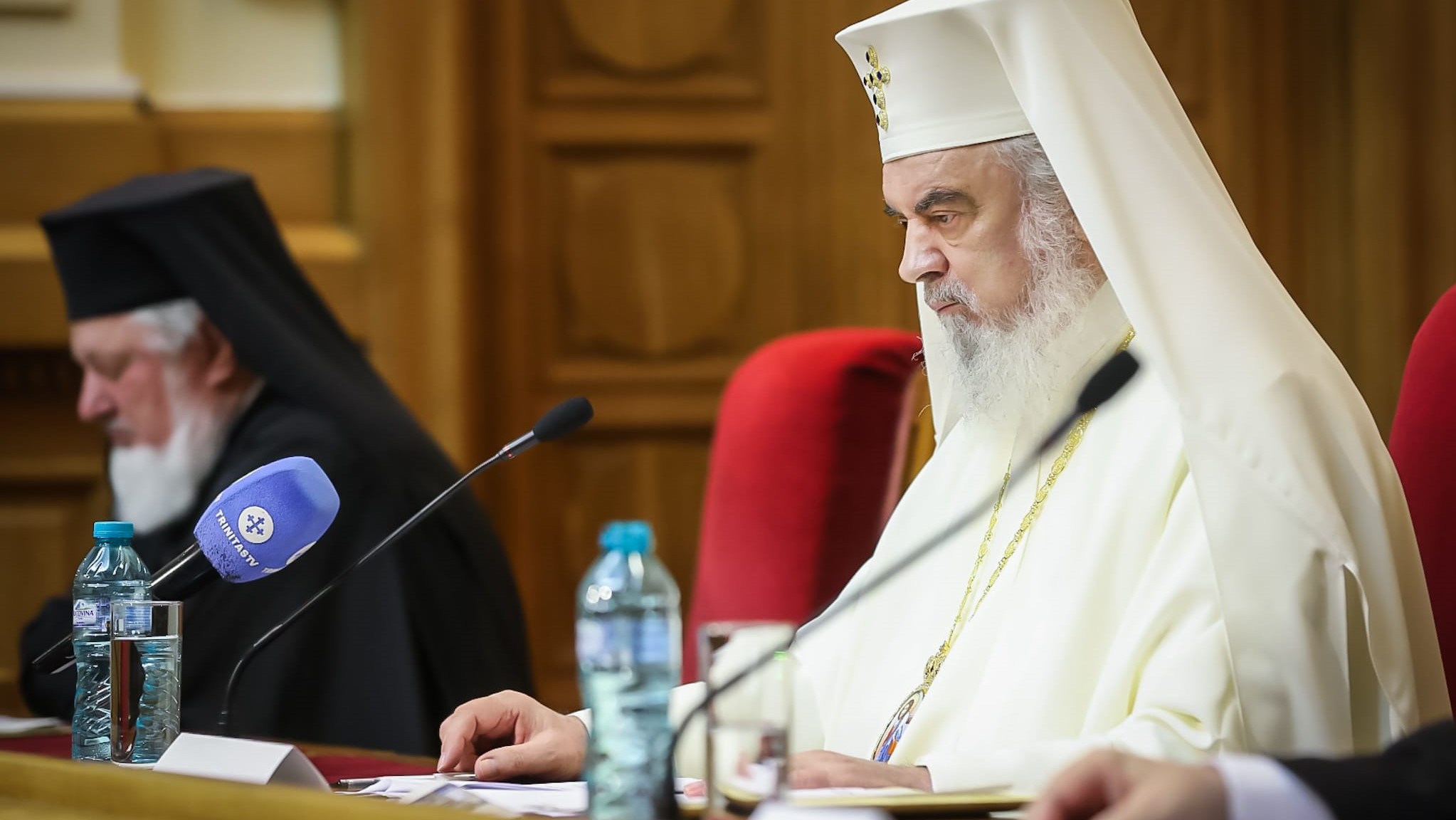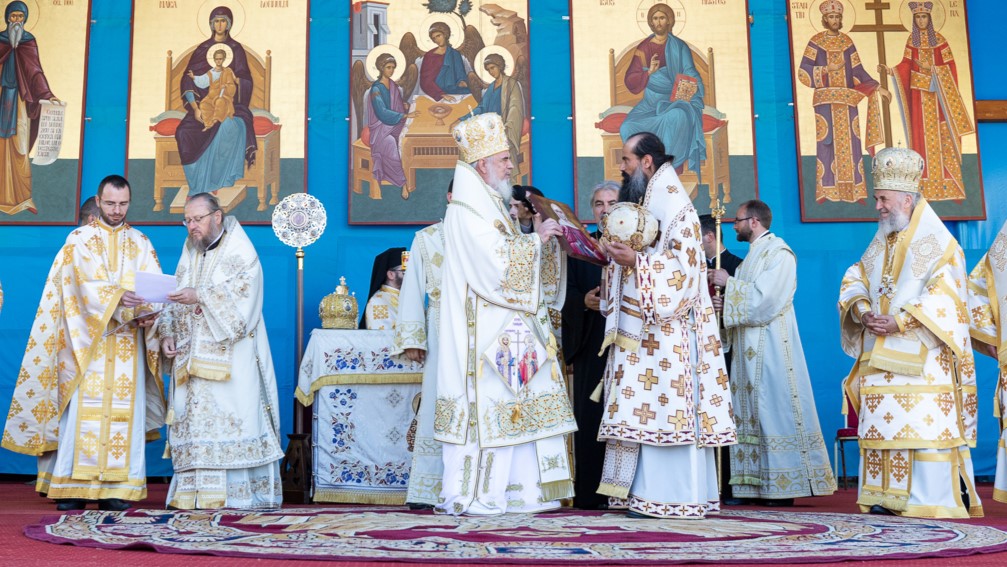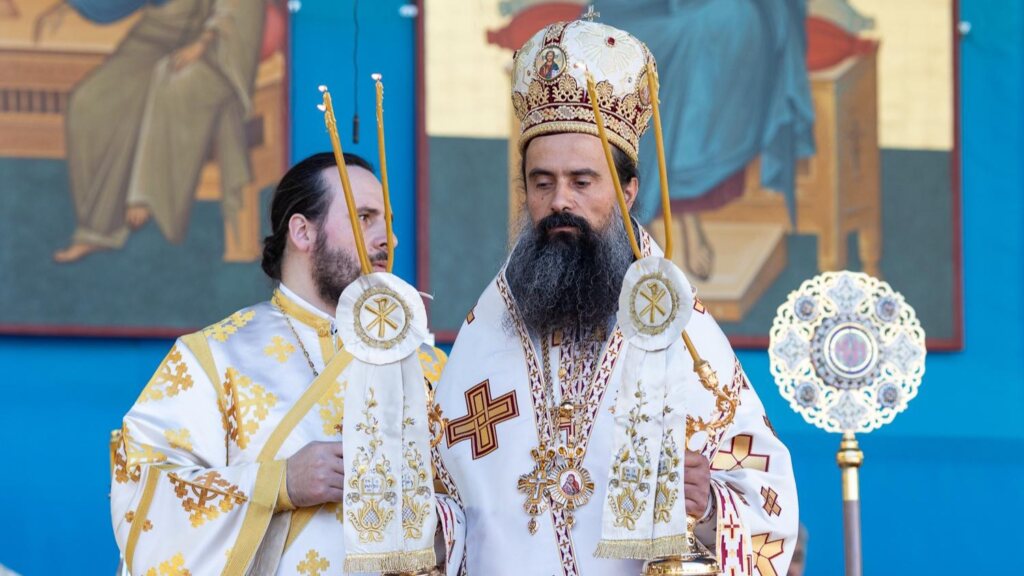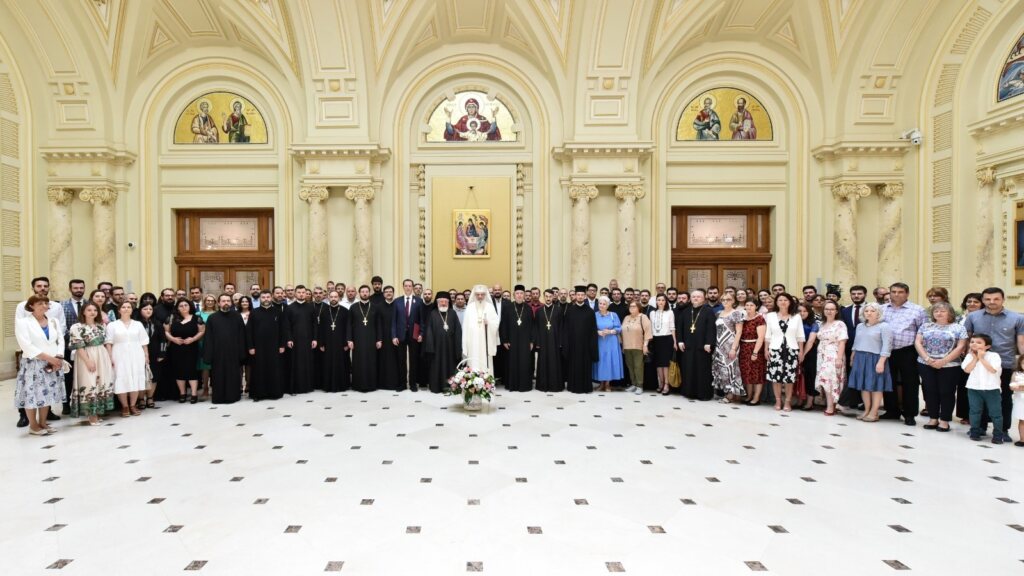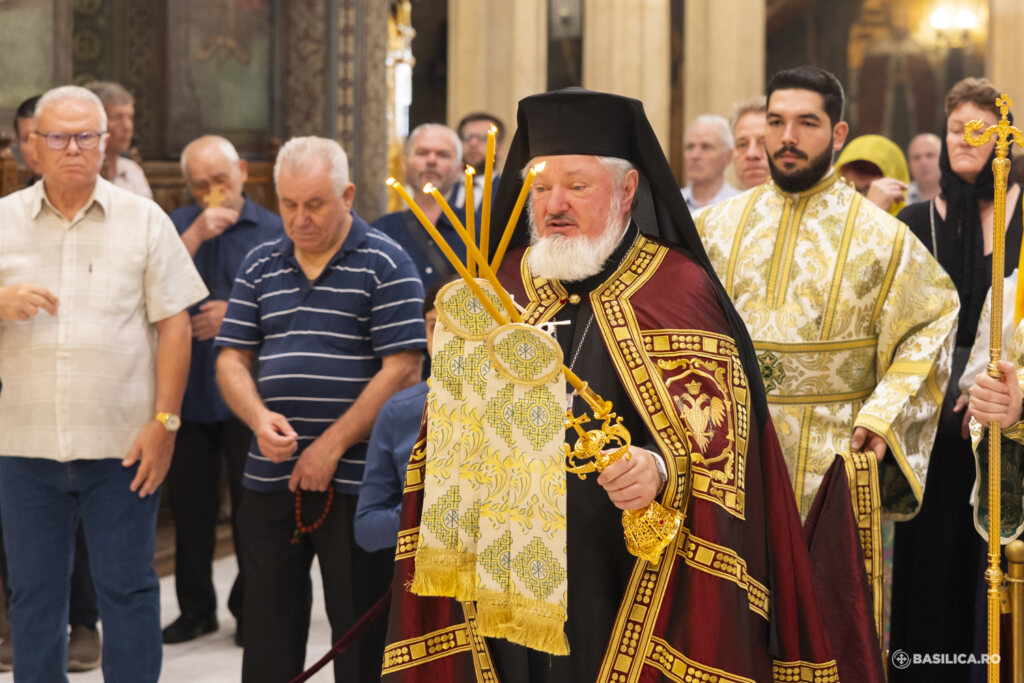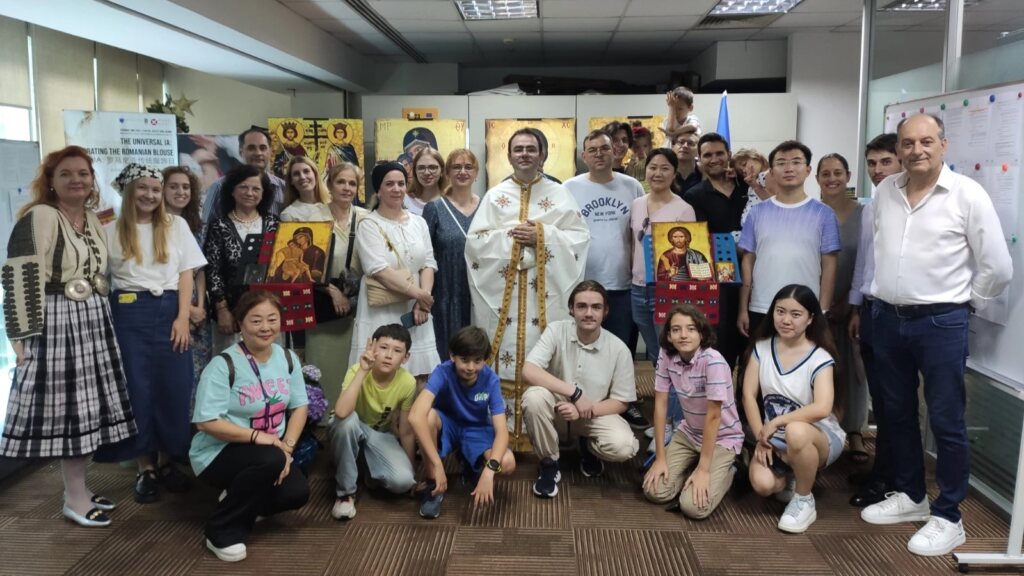His Beatitude Patriarch Daniel opened the spring session of the pastoral-missionary Conference of the Archdiocese of Bucharest with a message about the spiritual significance of the presence of the elderly in the lives of young people.
The pastoral-missionary Conference gathered clergy members from throughout the Archdiocese of Bucharest at the Patriarchal Palace on May 29-30, 2023.
“Christian philanthropy has embraced the needs of the elderly not only as a matter of social assistance but has always reinforced the spiritual importance of valuing the elderly as living treasures of experience, patience, perseverance, justice and wisdom, accumulated throughout life and received, in turn, from previous generations,” the Patriarch of Romania reminded the priests.
Offering three priorities for the pastoral care of the elderly, Patriarch Daniel prayed to God “to pour out His rich gifts on all the servants of the holy altars, to increase their pastoral and missionary work in the Church and in society.”
Priorities for the pastoral care of the elderly: full text
The Holy Synod of the Romanian Orthodox Church designated 2023 as the Solemn Year of the pastoral care of the elderly, considering that at no time in history has there been an older population in Europe, not only in rural communities but also in the urban ones.
This new social reality also requires the adaptation of new methods of pastoral care to respond to and fulfil the needs of today’s believers.
The Church has to concern itself with all believers, regardless of their age or socio-cultural status, supporting them towards a natural development of the image of God in His likeness, towards the fulfilment of the purpose of human existence: the sanctification of one’s life for the acquisition of the Kingdom God’s.
If we must respond to everyone, being close to all our fellows, we have the moral obligation to concern ourselves with those in need or those who cannot manage without help: children and older people.
The degree of civilization of a people is seen in the care it shows for the elderly, children and those in need who cannot support themselves.
Divine Liturgy and philanthropy indicate an actual spiritual vitality of a Christian community. In this sense, we cannot remain indifferent to the state of social abandonment and disinterest towards the elderly, which we, unfortunately, see too often in today’s society.
Christian philanthropy has embraced the needs of the elderly not only as a matter of social assistance but has consistently reinforced the spiritual importance of valuing the elderly as living treasures of experience, patience, perseverance, justice and wisdom accumulated throughout life and received, in turn, from previous generations.
The Church has been concerned with the elderly since the apostolic period, considering them not a burden but a true source of blessing.
What we learn is what we have received from “the Lord, the God of our fathers – the God of Abraham, Isaac and Jacob” (Exodus 3: 15). God’s blessing through the elderly towards the young generation is realized, in the most authentic way, by their participation in the proper growth of the young, by planting in them the seeds born from “the root of understanding does not fail.” (Wisdom of Solomon 3: 15).
Young generations must not overlook the true communion in the Church between different generations: children, young people, adults, elderly.
The entire Christian community is one on the way to the one Kingdom of God. Therefore, breaking communion between generations is foreign to Orthodox spirituality. In this sense, Saint Ambrose of Milan wrote in the Commentary on the Gospel according to Luke (VIII: 58): “Therefore you can have, even in tender childhood, a venerable maturity of conduct; and in old age, you can have an innocence such as children might have.”
In the secular individualist society, social policies are contradictory: on the one hand, a considerable effort is made to invest material and human resources to increase the longevity of human life. But on the other hand, the elderly are seen by the active population of society as a burden.
1. In the Church, a priority in the pastoral care of the elderly is the involvement of the elderly in raising and educating children, especially regarding prayer. The elderly, through their spiritual maturity, can be of great assistance in cultivating liturgical life and preserving Christian values in our culture for the benefit of society and the family.
In some areas of the country, children call their grandparents “the good ones”, because they feel more the kindness of the elderly. However, it is found that grandparents also prefer grandchildren, and grandchildren prefer their grandparents. Therefore this fact must be used for a proper upbringing of children.
Let us remember the importance grandparents had during the communist period when they managed to keep the Christian faith alive, passing it on to generations of grandchildren. Our good grandparents have always been authentic examples to whom not only the Church but also the entire Romanian culture owes considerably.
2. Another priority that we must keep in mind in the pastoral care of the elderly is to consider the period of old age as a privilege, a period of spiritual growth and enrichment through prayer. Thus, old age is not a burden but a gift from God: “God has presented me a precious gift at this time!” (Genesis 30:20).
Old age is a period of life when man has the chance to get even closer to God. The New Testament clearly shows us that the wisdom of seniors depends on their closeness to God through prayer and the virtuous life they live.
For example, the Righteous Simeon was not only a learned man, but also a constantly praying person, enlightened by the Holy Spirit to recognise the Messiah in the Infant Jesus: “this man was just and devout, waiting for the Consolation of Israel, and the Holy Spirit was upon him” (Luke 2: 25).
The prayer of the elders is, at the same time, the source of their wisdom but also a blessing for the whole community. We have so many examples in the Holy Scriptures of the Old and New Testaments in which it is shown how the power of prayer supplements the physical weakness of old age, the strength of wisdom, the measure of knowledge, and the power of gentleness.
We also see how from the body weakened by the old age of the priest Zecharias and his wife, Elizabeth, strengthened by prayer, the Forerunner of the Lord, the Holy Prophet John the Baptist, is born; how from the weak bodies of Abraham and Sarah, “many nations” are born (Genesis 17:4).
3. Another priority of the Church in the current pastoral care of the elderly can be their active involvement in the pastoral ministry and mission of the Church. Unfortunately, there are many old people today who live in great loneliness, in isolation from their community, feeling somehow useless. But there are many seniors who live their old age with serenity and dignity, actively participating in the life of the Church and helping other old persons.
Elderly people can be co-opted in the mission and pastoral care of the Church, the elderly being indispensable in this work since, through their richness of faith and life, they contribute significantly to the spiritual growth of the whole community.
That is why the Church is called to strengthen its pastoral program regarding the elderly, to think of new ways and current pastoral methods, getting closer to the needs and expectations of the elderly.
At the same time, it is known that the Romanian Orthodox Church has been making significant efforts to help the elderly for many years. Besides their individual pastoral care, our Church offers concrete support to the elderly through various social centres and philanthropic actions or programs.
For example, over 500 sick and elderly people receive accommodation, medical care and spiritual and psychological counselling annually at Saint Nectarios Palliative Care Centre in Bucharest.
We are confident that this missionary work of the Church will increase throughout the country through multiple actions to support older people.
Currently, 21 daycare centres, 54 residential settlements and 52 home care services operate at the level of the Romanian Patriarchate, all intended for the elderly. But, of course, this work needs to be expanded because the needs are multiple.
We bless the opening of the works of the Pastoral-Missionary Conference of the clergy of the Archdiocese of Bucharest, praying to God to pour out His rich gifts on all the servants of the holy altars to increase their pastoral and missionary work in the Church and society.
† Daniel
Patriarch of the Romanian Orthodox Church
Photography courtesy of Basilica.ro / Mircea Florescu
Follow us on Twitter: @BasilicaNews
